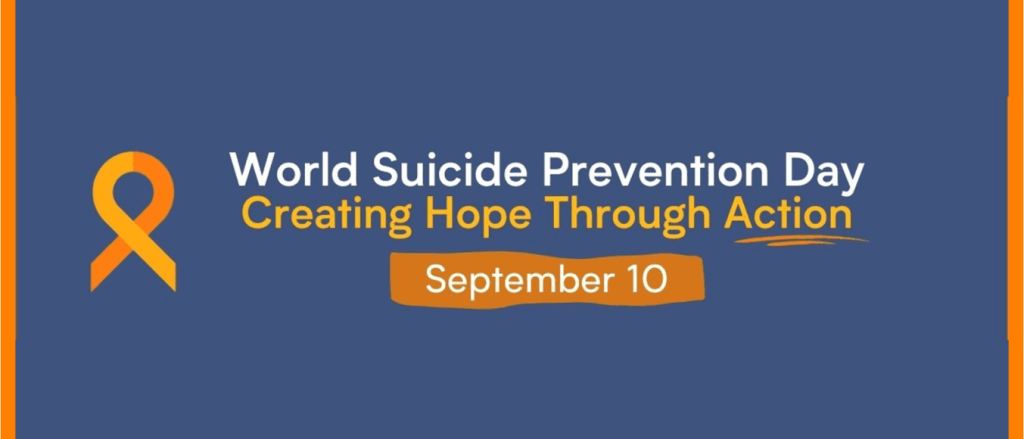10th September is World Suicide Prevention Day, an important day serving as a global reminder of the significance of mental health and the collective effort required to prevent suicide.
In the UK, suicide accounts for 11 of every 100,000 deaths, a figure that has increased since 2020. Of every 100,000 male deaths, 16 are by suicide while the rate amongst women sits at 5.5 – although this is a figure also on the rise.
Concerningly, the North East has the highest suicide rate (14.1 per 100,000 people) and has led on this unwanted statistic for a number of years. Those statistics only further highlight the importance of suicide prevention and awareness of mental health.
At Gateshead Health, we’ve been grateful to have in place more than 75 Mental Health First Aiders as we continue to work towards a culture that is more aware of and considerate to mental health. With a healthy waiting list waiting to train, we expect to reach three figures soon – and encourage any interested staff to register their interest.
Support for Managers:
As well as providing a range of support options around suicide prevention over on our dedicated page, we have recently moved to launch new guidance for managers to help them in supporting colleagues during times of crisis. The new guidance is designed to give manager’s something to refer to in the first instance when they are presented with a staff member in crisis.
This document will help you to better understand how to respond to and support colleagues during times of crisis – helping you feel more comfortable with the steps that should be taken and ensuring your support is appropriate. The guidance can also be easily found any time via our Manager Support page or under the ‘Urgent Support’ heading on the Occupational Health and Wellbeing page of StaffZone.
Another useful resource for managers is the supporting mental health at work guide for people managers created by Mind and the CIPD, available to view here.
Zero Suicide Alliance Training:
Zero Suicide Alliance’s free online training courses are aimed at providing you with the skills and confidence to have a potentially life-saving conversation with someone you’re worried about.
The organisation’s full suicide awareness training takes only 20 minutes and helps you learn how to spot suicide warning signs, how to have a conversation with someone you’re worried about, where to signpost to for further support and ultimately understand that suicide is preventable.

